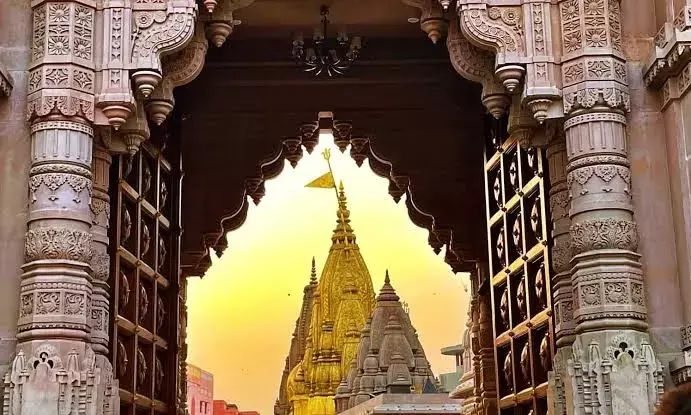Varanasi: The City of Kashi and Its Divine Connection to Lord Shiva
Why is Kashi Called Varanasi? The Connection to Lord Shiva;

The ancient city of Kashi, also known as Varanasi, is one of the most revered spiritual destinations in India. Its significance extends beyond its historical and cultural importance, reaching deep into the roots of Hindu mythology and the divine. This article delves into the origins of the name "Varanasi" and explores its profound connection to Lord Shiva.
The Etymology of Varanasi
Varanasi derives its name from the two rivers that demarcate the city: the Varuna and the Assi. These rivers join the Ganges on the northern and southern borders of the city, respectively. Historically, the land lying between the confluences of the Varuna-Ganga and Assi-Ganga was referred to as Varuna-assi, which eventually evolved into Varanasi. Although the modern city has expanded beyond these natural boundaries, the name has endured, preserving its ancient legacy.
The Varuna River, a minor tributary of the Ganges, is named after Varun, the god of water. According to the Padma Purana, the Varuna and Assi are two holy rivers, and the land between them is the sacred territory of Kashi. The Purana extols Kashi as an unparalleled holy site on Earth, underscoring its spiritual significance.
Varanasi and Lord Shiva: A Divine Relationship
The legend of Kashi is deeply intertwined with Lord Shiva, one of the principal deities of Hinduism. It is believed that Shiva himself resided in Kashi, making it his winter abode. The mythological narrative explains that while Shiva lived as an ascetic in the upper Himalayas, his marriage to a princess necessitated a compromise. Embracing his responsibilities, Shiva chose Kashi, the most splendidly built city of that era, as his new home.
The Departure and Return of Shiva
A captivating story from Hindu mythology recounts how Shiva once left Kashi. The gods, fearing that the city would lose its sanctity without proper management, sought the help of Lord Brahma. Brahma discovered a royal sage, Ripunjay, performing intense penance in the nearby forests. Impressed by his devotion, Brahma asked Ripunjay to ascend the throne of Kashi under the new name King Divodasa.
King Divodasa established an exemplary rule, bringing order and prosperity to Kashi. However, his condition for accepting the throne was that no gods or divine beings would set foot in his kingdom, a decree that even Shiva respected. Over time, Shiva's longing to return to his beloved city grew stronger.
The Gods' Attempts to Bring Back Shiva
Shiva's desire to return led to various divine interventions. Shiva sent messengers and celestial beings to disrupt Divodasa's reign, hoping to find a flaw and reclaim his city. Yet, each divine envoy fell in love with Kashi and refused to leave, from the sixty yoginis to Surya, the sun god, and even Brahma himself.
Finally, Shiva turned to Lord Vishnu, who devised a strategic plan. Ganesha, Shiva's son, disguised as an astrologer, gained the trust of King Divodasa by predicting that a wise sage would soon visit him. Vishnu, in the guise of a saint, persuaded the king to correct his karmic imbalance by installing a Shiva Linga and worshiping Shiva to restore peace and harmony.
On the seventh day after the installation of the Shiva Linga, as prophesied, a celestial chariot appeared to grant moksha (liberation) to King Divodasa, transporting him to Shiva’s abode. The Shiva Linga installed by Divodasa, known as Divodaseswara Shiva, remains a significant shrine in Varanasi near the Vishwanath Temple at Dasaswamedha Ghat.
Conclusion
Varanasi, or Kashi, is not just a city but a testament to the profound spirituality and mythology that underpin Hindu beliefs. Its name, derived from the Varuna and Assi rivers, and its deep connection to Lord Shiva, who chose it as his earthly abode, continue to attract millions of devotees and spiritual seekers. The tales of divine interventions, the dedication of King Divodasa, and the ultimate return of Shiva to his beloved city illustrate the enduring sanctity and reverence of Varanasi in the spiritual landscape of India.

